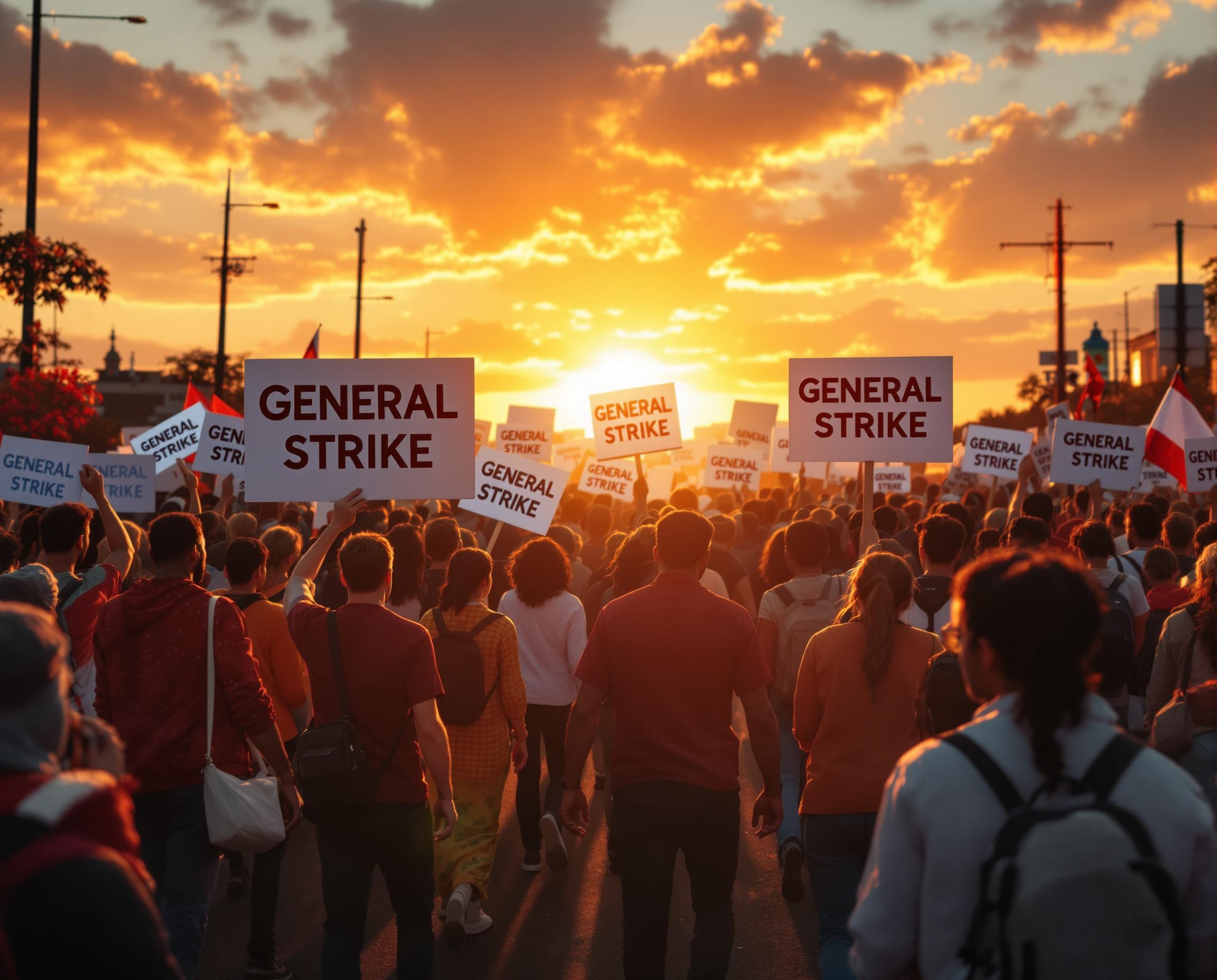A general strike is a type of labor strike in which workers across multiple industries or sectors stop working simultaneously to protest against certain political, social, or economic issues. It typically involves a large portion of the workforce, and its goal is to exert pressure on governments or employers to address grievances, such as poor working conditions, wages, or policies. Unlike a sector-specific strike, a general strike aims to disrupt society on a larger scale, involving workers from various fields.
National General Strikes
There have been several significant general strikes around the world in the past 5 years. A general strike involves a large number of workers, often across different sectors, coming together to demand political, economic, or social change. Here are a few examples:
France (2019-2020): France saw widespread general strikes against pension reforms proposed by President Emmanuel Macron. These strikes, which lasted for weeks, involved various sectors, including transportation, education, healthcare, and public services. The strikes disrupted public life, including train services and air travel, as workers fought to protect their pension benefits.
India (2020): On November 26, 2020, tens of millions of workers participated in a general strike in India, demanding the repeal of controversial labor laws that they believed would undermine workers’ rights. This strike, one of the largest in history, involved workers from a wide range of sectors, including agriculture, manufacturing, and the service industry.
Belgium (2019): In Belgium, a general strike organized by trade unions in December 2019 saw workers protesting pension reforms and cuts to public services. The strike involved transportation workers, teachers, healthcare professionals, and others, and it caused widespread disruptions across the country.
Colombia (2019): In November 2019, a general strike took place in Colombia, sparked by opposition to labor reforms, inequality, and government policies. The strike was part of larger protests that saw millions of Colombians in the streets, demanding political change and improved economic conditions.
Chile (2019): Chile witnessed a massive general strike in response to rising inequality. The tipping point was public transportation fares, and the burdensome government austerity policies. The strike was part of a larger wave of protests that led to significant political change in the country, including the drafting of a new constitution.
United States (2021): While the U.S. has not seen a nationwide general strike, there have been significant worker actions, including strikes, walkouts, and labor organizing, especially in response to the COVID-19 pandemic. Notably, there was the “Great Resignation,” where millions of workers left their jobs, and a surge in labor activity in industries like retail, fast food, and transportation.
Locally organized strikes
- Last year, in Minneapolis, thousands of janitors, airport workers, nursing home workers and others struck in a coordinated week of action This impressive demonstration of coordinated labor flexing across an entire region helped other unions, like the teachers, win contracts.
- In early March 2024 in Minneapolis, thousands of janitors and airport workers and nursing home workers and others struck in a coordinated week of action that was an impressive demonstration of coordinated labor flexing across an entire region. Its power helped other unions, like the teachers, win contracts.
- A unionist from the UK said that unions in his country had recently done a series of one day strikes covering entire industries—and that it wasn’t enough. One day strikes just aren’t long enough to impose the pain necessary to achieve change. They are effectively symbolic. By starting with one day strikes- coordinated mass non-participation events we can capture their attention and build momentum for the long term general strike that may be necessary to remove our government from the hands of the wealthy.
While these events were not always typical “general strikes” in the classical sense (with workers from every sector participating), they represented large-scale labor movements or coordinated strikes that impacted entire nations or regions and brought attention to key issues facing workers and society.
General Strike 2028
- The United Auto Workers (UAW) has called for a general strike on May 1, 2028, aligning with International Workers’ Day. This initiative aims to unite various unions across the United States in a coordinated work stoppage to advocate for workers’ rights and address issues such as fair wages, benefits, and working conditions
- Numerous UAW contracts with the “Big Three” automakers—General Motors, Ford, and Stellantis—would expire on April 30, 2028
- At the American Federation of Teachers’ annual convention in , the AFT’s 1.8 million members gave a round of applause’s United Auto Workers president Shawn Fain, who has called on the U.S. labor movement to join a nationwide strike in 2028.
- Vermont AFL-CIO: The Vermont AFL-CIO has committed to aligning its contracts to expire on May 1, 2028, in support of the proposed general strike. This decision reflects a broader movement within labor organizations to coordinate efforts for a unified strike action.
The proposed general strike is seen as a significant opportunity to mobilize workers nationwide, addressing economic disparities and advocating for policies like Medicare for All. However, the success of such a large-scale action depends on extensive coordination among unions and widespread support from workers across various sectors.
As of now, the 2028 general strike remains a planned initiative, with ongoing discussions and preparations within the labor movement. The outcome will depend on the level of organization and solidarity achieved in the coming years.



 No products in the cart.
No products in the cart. 